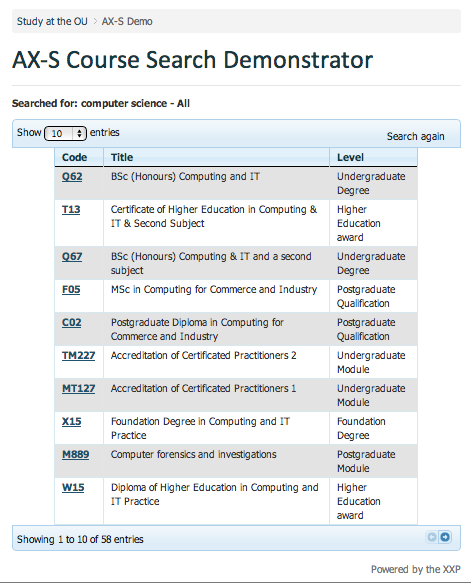One of the issues I flagged up in the post about the w4 demonstrator was the lack of CPD vocabularies.
Restricted vocabularies provide a way of making sure the meaning of data is clear.
Whilst xcri-cap provides a simple clear structure for setting out data about courses, it doesn’t prescribe a particular vocabulary, as the specification itself could be used in a wide range of circumstances, and contexts. The #Coursedata programme however does have a vocabulary framework document which provides guidance on creating and publishing vocabularies for xcri-cap.
Due to the ambiguities of the English language, if for instance you were to search for decorating courses on Google using the term “stripping” some of the results might be unsuitable. (Don’t try this). By using a controlled vocabulary, context can be assured, and also meaning understood, which should result in beter search results. However this is a complex area, as indicated by Netflix being happy to volunteer $1million for an improvement in search of 10%. http://www.netflixprize.com/
One of the #coursedata demonstrators the AX-S widget uses a lexicon of terms based on JACS codes to provide better results which appear as the search box is completed.
The widget can be added to any webpage and use an institutions feed. The code is available on GitHub. https://github.com/igsl/AX-S-widget
More details can be found on the project blog, along with a link to a live version of the demonstrator: http://alanepaull.wordpress.com/category/xcri/demonstrators/ax-s-widget/


